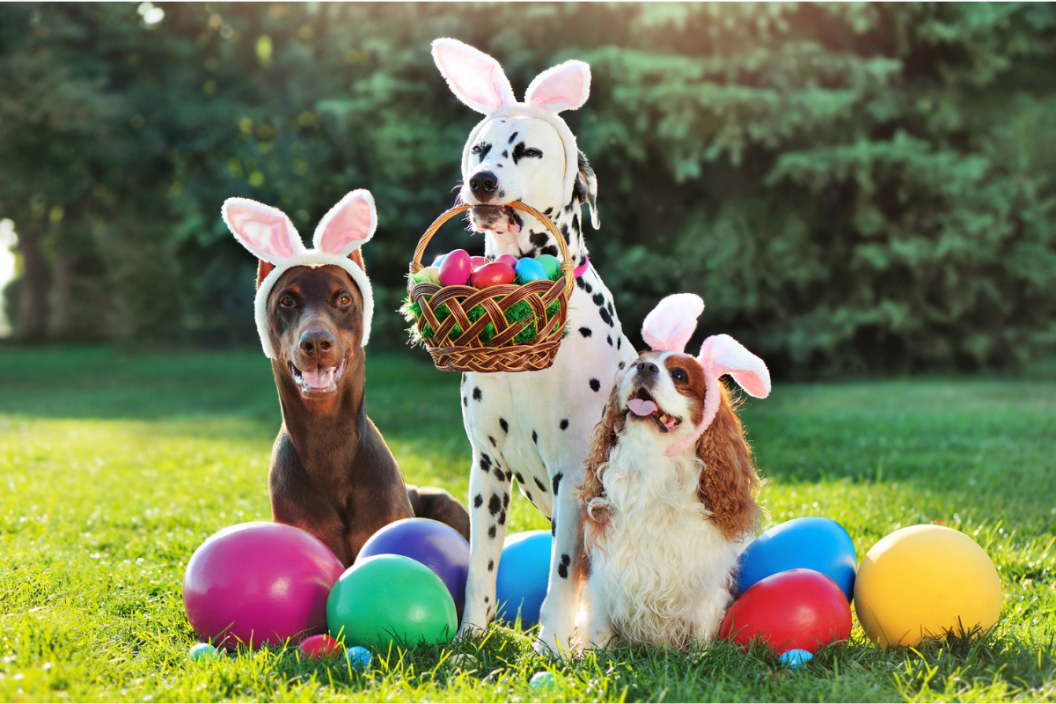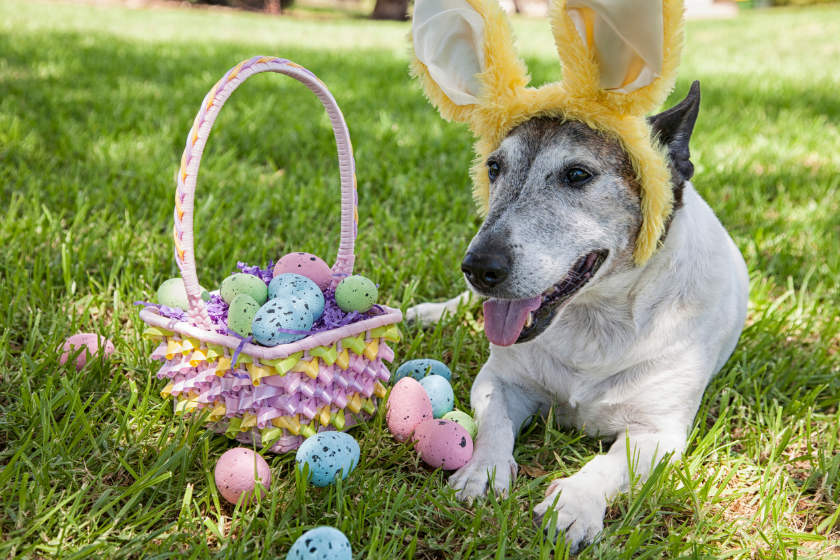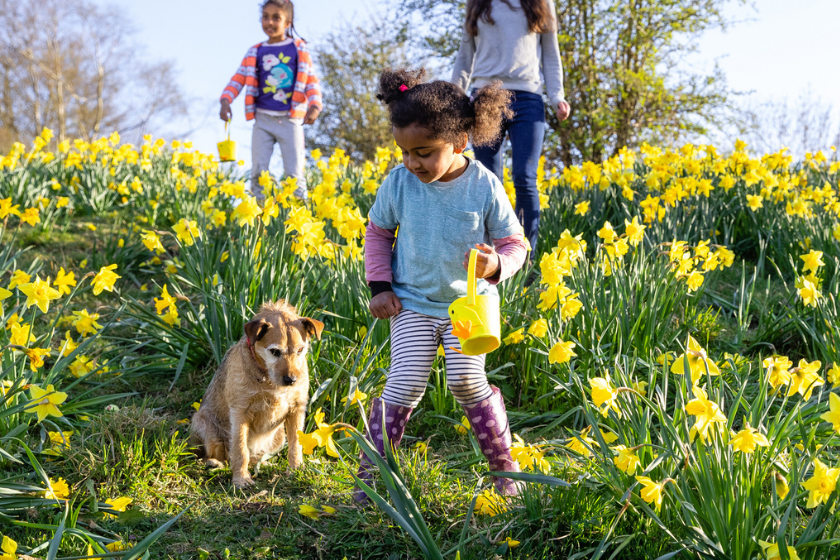Who says Easter egg hunts are just for kids? Your fur baby can participate in the holiday and enjoy the hide-and-seek fun of an egg hunt, too. Hosting a dog-friendly Easter egg hunt is an enjoyable and challenging enrichment activity that pets and humans alike will love. Bonus points if you get your dog to wear bunny ears during the hunt!
As with all egg hunts, whether you host your event indoors or out will depend on the weather. If you choose to invite your pup's furry friends and make this a group activity, it's best to keep everyone with four legs on a leash. There's nothing wrong with some friendly competition, but you'll want to avoid any tussles over eggs! Also keep in mind that not every dog will enjoy this experience with other dogs around. If your dog becomes easily overstimulated or exhibits resource guarding behaviors, let him participate in his own individual egg hunt.
Here's everything you need to know to host a fun and safe Easter egg hunt for dogs:
How to Plan a Dog-Friendly Egg Hunt
Enrichment activities like these stimulate your dog's brain and decrease boredom to reduce the chance of unwanted behaviors. When your pup is physically and mentally challenged, he's happier! This activity allows your pet to do all the fun doggie things he loves: Sniffing, exploring, foraging and running. Because dogs have a sense of smell that's 10,000 to 100,000 times more sensitive than ours, this sort of dog-friendly game feels natural to them.
Host separate hunts for kids and dogs.
If you've got kids, it's best to be on the safe side. Host two separate egg hunts to prevent your pet from accidentally finding and ingesting dangerous human treats, such as chocolate. Chocolate is toxic to dogs, and so are candies that contain xylitol, raisins, coconut and several kinds of nuts.
Use your pet's favorite treats.
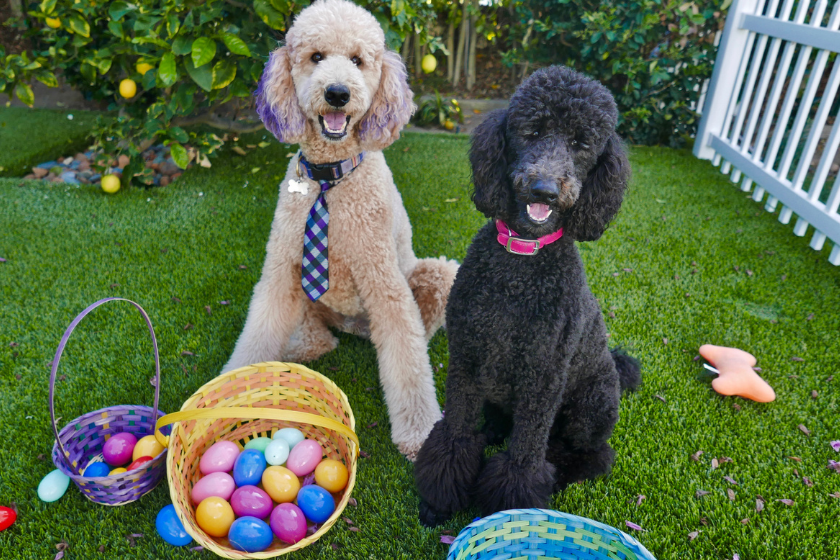
Keep your dog motivated during the hunt by choosing high-value treats. You can't go wrong with dog jerky, a universal favorite—but every dog is different and only you know what makes yours come running! Also, smelly treats, as opposed to something odorless like carrots, are best for this game. The treats should be pea-sized (or even smaller for little dogs) to avoid adding too many extra calories to your pet's day.
Prepare the eggs.
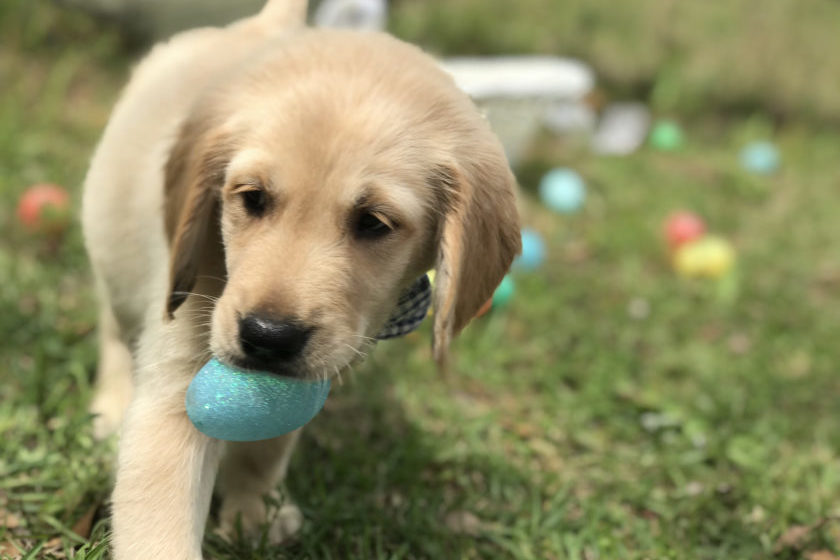
Next, hide the treats inside large plastic eggs. They should be too big for your dog swallow in his excitement during the hunt. Also, be sure to keep track of how many you're hiding so he won't find them later and chew on the plastic eggs, causing a choking hazard.
Hide the eggs.
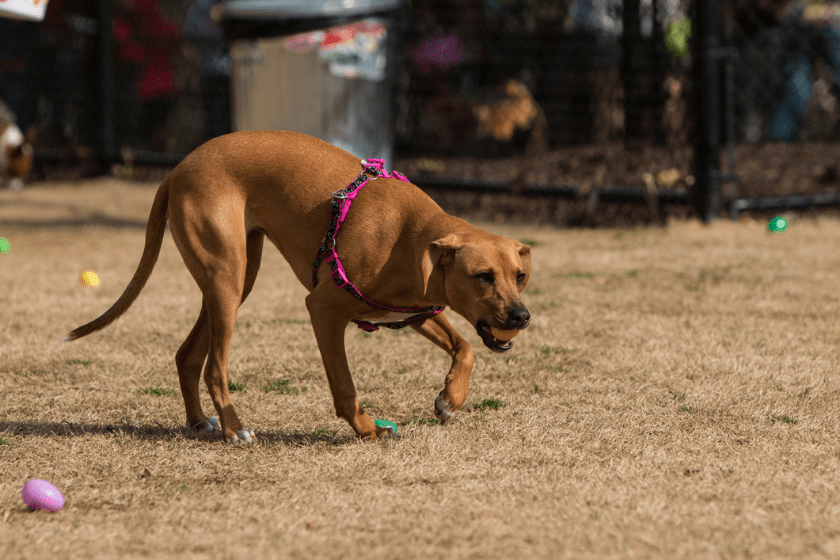
At first, keep the game simple as your pup learns the rules—and remember that every dog will pick up the game at his or her own pace! Scatter the eggs on the lawn, behind shrubs, or underneath furniture. You can help your pet along by issuing the "find it" command, if he's familiar. Or you can walk him on the leash to the egg, point at it (yes, dogs understand pointing!), and act happy and excited when he noses or paws it, rewarding him with the treat when he touches the egg. As he catches on, begin to hide the eggs in more challenging places, such as under the sofa or a bucket turned on its side in the yard.
Have fun!
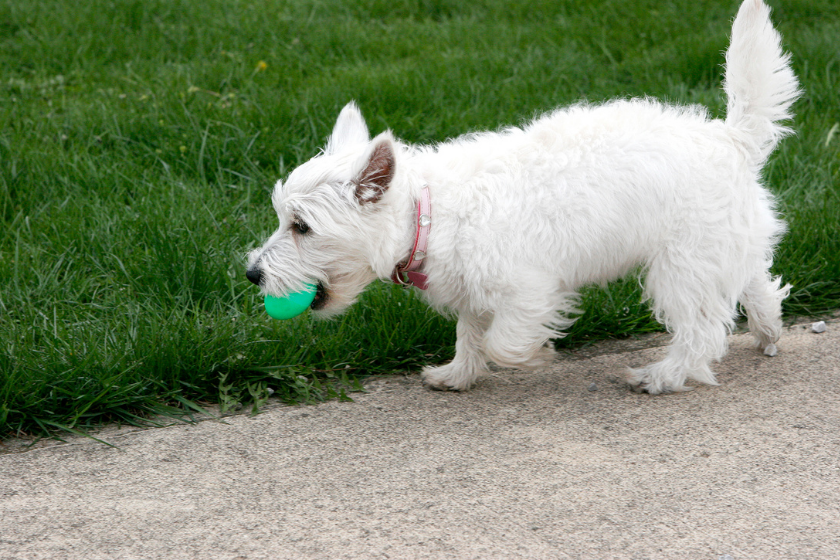
The goal of this activity is for dogs and their pet parents to interact, bond, and have fun. Don't get frustrated if your pet doesn't seem interested (try changing up the treats) or distracted (try it indoors if there's too much going on outside to keep his attention). Remember that, just like people, every dog has different activities they enjoy. That's one of the many qualities that makes your fur baby unique!
Have you ever hosted a dog-friendly Easter egg hunt? Tag us in your photos on the Wide Open Pets Instagram!
